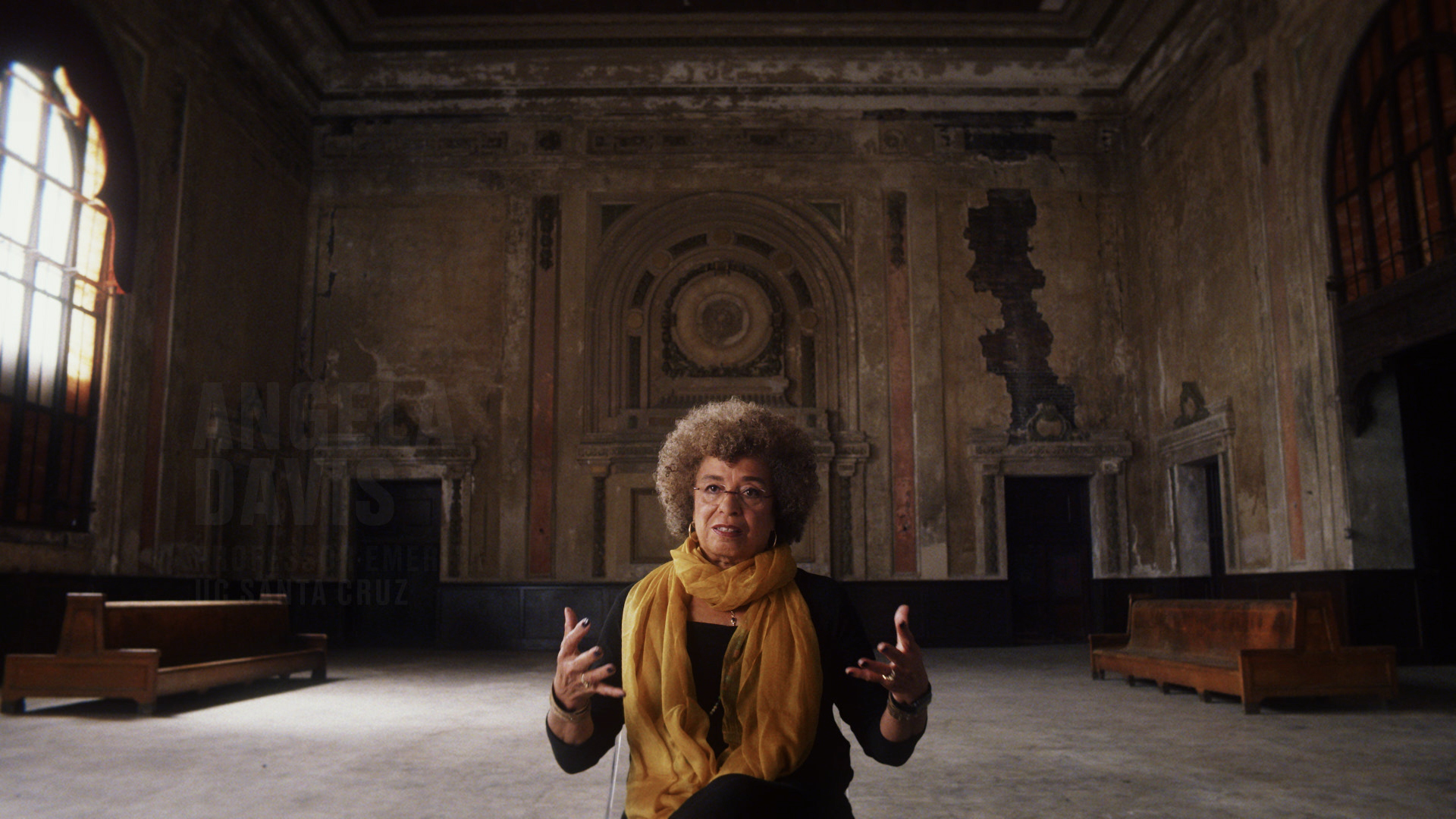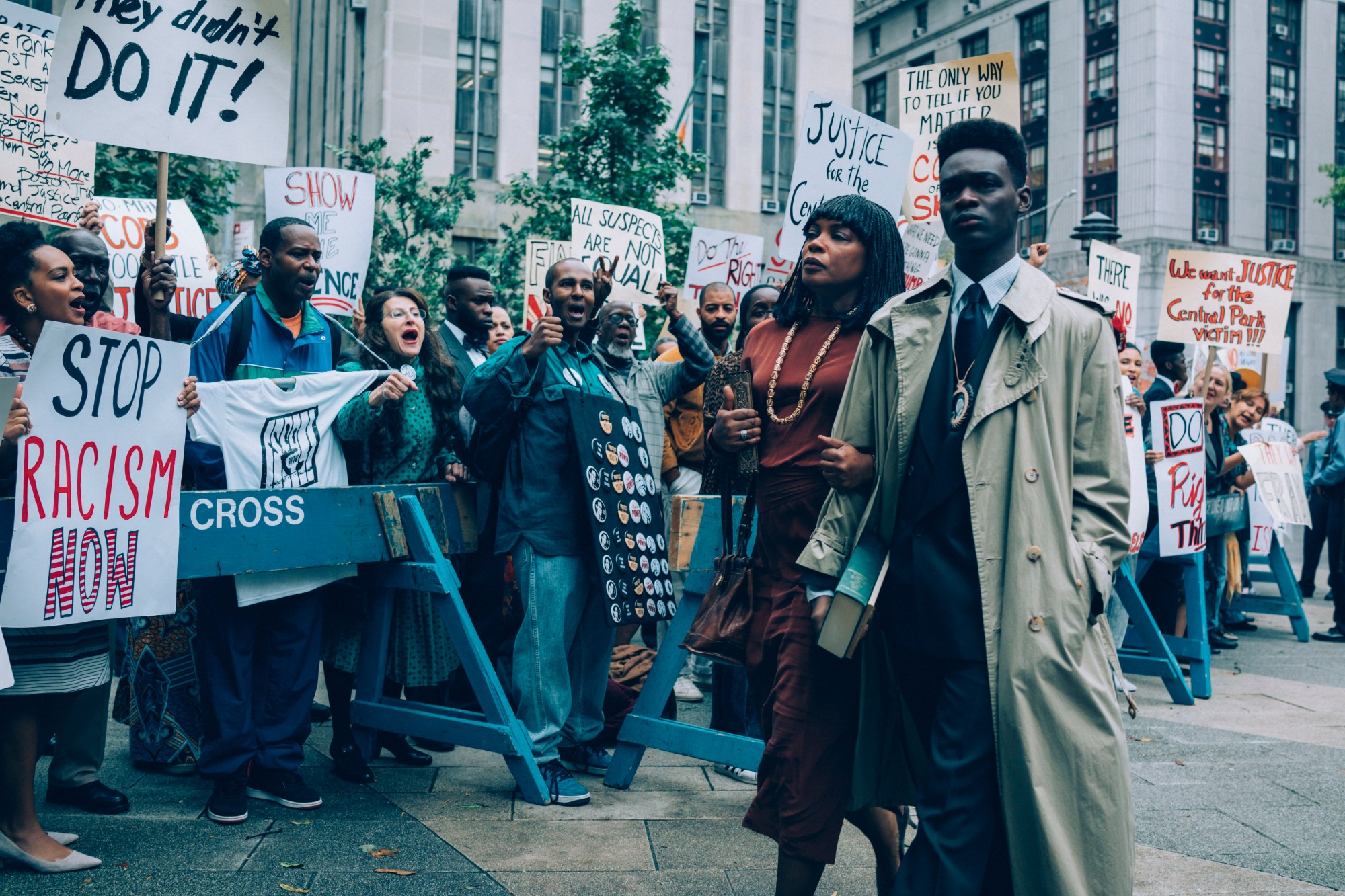Eleven days after the murder of George Floyd and the subsequent eruption of protests worldwide, one thing is clear: we must all educate ourselves on the underlying causes that led up to this point. One way to do that is by reading books and essays that explore the issues of structural racism and white supremacy, and another is to watch the wide range of insightful films, shows and documentaries on offer. Netflix provides an easy entrance point via some very topical films — from those chronicling the lives of prominent activists such as Malcolm X and Marsha P Johnson, to those delving deeper into the dysfunctional and corrupt justice system at the heart of American society. We have compiled a list of the best 7 to watch, so go and block out a couple hours in your schedule this weekend.

13th (2016)
This documentary chronicles the development of a carceral state following the abolition of slavery, with money as its driving force. It shows how cheap prison labour is ingrained in the US economy in ways unknown to the consumer, and how the system is designed to get Black men into jails early and often. It also casts light on the legislative efforts that are designed to entrap disenfranchised Black communities: from policies like the three-strike rule and stop-and-frisk, to the way possession of crack cocaine is sentenced much more harshly than the more expensive powdered version typically associated with white drug users. A bleak but necessary watch.
LA 92 (2017)
Watching this documentary, it’s hard not to see the glaring similarities between today’s protests and those that took place in LA in 1992. Those were triggered by the acquittal of four white police officers for brutally beating Rodney King, an unarmed Black motorist, despite the fact that the events were caught on a bystander’s camcorder. Due to concerns that an impartial trial could not be held in the heated context of Los Angeles, the trial was moved to a white suburb of the city and held before a majority-white jury — which, unsurprisingly, hugely influenced the outcome. After the acquittal an intense period of protest, resistance and property damage ensued. While the documentary refrains from providing much commentary, LA 92 is a gripping document of how quickly things escalate when justice isn’t served.
Trial By Media: 41 Shots (2020)
This episode from Netflix’s new show Trial by Media tells the story of the brutal killing of Guinean immigrant Amadou Diallo by NYPD officers in 1999. Despite being shot 41 times while trying to enter his own home, all police officers involved were subsequently acquitted. Diallo was unarmed and a firestorm of controversy erupted after the event, as the circumstances of the shooting sparked outrage in New York and far beyond. In the episode, leading figures within the civil rights movement such as Al Sharpton provide commentary on the case, teaching us lessons that still resonate today.
The Innocence Files (2020)
This show details the personal stories behind eight cases of wrongful conviction that The Innocence Project and affiliated organisations have worked to highlight and overturn. It paints a damning portrait of America’s unforgiving, corrupt and frighteningly unreliable criminal justice system, in which those accused without proper representation risk facing harsh and long sentences — including death row. It sheds light on some dubious incrimination techniques used in the 80s and 90s, which led to the incarceration of numerous innocent people. While not all of the eight episodes chronicle wrongfully convicted African Americans, the Innocence Project notes that of the 367 imprisoned people in the US who have been eventually exonerated by DNA evidence, 61% have been Black.
When They See Us (2019)
If you haven’t seen the emotional and gut-wrenching drama When They See Us, set some hours aside for it in the next few days. It’s based on a true story about five teens from Harlem who become trapped in a judicial nightmare when they’re falsely accused of a brutal attack in Central Park in 1989. The show paints a bleak picture of how easily the presumption of innocence is violated, when the white adults involved tacitly agree that these boys ‘must’ have done it, as they are the obvious suspects. A powerful and unforgiving examination of injustice — not only of the effects of systemic racism but the effects of all sorts of disenfranchisement that comes with being a teen boy of colour in American society.
Who Killed Malcolm X? (2020)
In this six episode-series we follow activist Abdur-Rahman Muhammad who begins his own investigation into the perplexing details surrounding the assassination of civil rights leader Malcolm X. After he was assassinated, three men were jailed: Talmadge Hayer, Norman 3X Butler and Thomas 15X Johnson. While Hayer admitted his part in the killing, the other two always maintained their innocence. Both have been released from jail since then, but the question remains: who killed Malcolm X? The Innocence Project again makes an appearance, investigating the miscarriages of justice that have taken place. All to good effect: 55 years after Malcolm X’s murder, the Manhattan district attorney’s office is reviewing whether to reinvestigate the murder, potentially bringing the relentless fight for justice to an end.

The Death and Life of Marsha P. Johnson (2017)
You can’t speak about protesting racism without mentioning Marsha P. Johnson, a Black transgender activist who was at the heart of New York City’s gay liberation movement, and is widely credited with throwing the first stone (or shot glass) back at riot police who raided the Stonewall Inn. In 1992, her body was found in the Hudson River, with the circumstances surrounding her death still unclear. The police department ruled it a suicide but a proper investigation was never undertaken. In the documentary, Victoria Cruz of the New York City Anti-Violence Project delves into the case, trying to trace every step taken before and after her death. A bleak account of crime, discrimination and police apathy, but a must-watch nonetheless.*
*Update: There is some controversy surrounding the way director David France obtained the idea for the documentary ‘The Death and Life of Marsha P. Johnson’, and the extent to which his work overlaps with the work done by Tourmaline and Sasha Wortzel for their 15-minute short ‘Happy Birthday, Marsha!‘ (2018), which is currently streaming on Amazon Prime. We recommend you watch both films.

